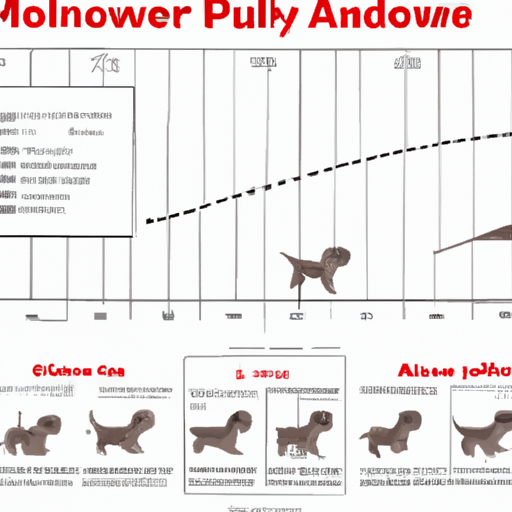As a caregiver, understanding the development stages of your furry friend is crucial for providing the best care possible. In this guide, we’ll discuss when dogs transition from puppies to adults and what changes to expect during this period.
1. Understanding a Dog’s Life Stages
Just like humans, dogs go through various stages of development. From puppyhood to adolescence and into adulthood, each stage has its unique characteristics and challenges.
Puppyhood
Puppyhood starts at birth and continues until about six months. During this stage, puppies are learning about their surroundings and beginning to form bonds with the humans and animals around them.
Adolescence
Adolescence in dogs begins at around six months and can last until they are about two years old. This is a period of rapid growth and change, both physically and behaviorally.
Adulthood
Dogs typically reach adulthood around one to two years of age, depending on their breed and size.
2. Factors Influencing When Dogs Become Adults
There are several factors that influence when dogs become adults. Let’s explore these in more detail:
Breed
Breed plays a significant role in when a dog reaches adulthood. Smaller breeds tend to mature faster than larger breeds.
| Breed Size | Approximate Age of Adulthood |
|---|---|
| Small Breeds | 9-12 months |
| Medium Breeds | 12-15 months |
| Large Breeds | 15-24 months |
Nutrition
Proper nutrition is vital for a puppy’s growth and development. Feeding your puppy a high-quality diet can help ensure they reach adulthood in a healthy and timely manner.
3. Changes to Expect as Your Dog Becomes an Adult
As your dog transitions from a puppy to an adult, you’ll notice several changes.
-
Physical Changes: Your dog will reach its full size and weight. You may also notice changes in their coat color and texture.
-
Behavioral Changes: Your dog’s behavior will likely become more stable and predictable. They may become less playful and more focused.
-
Dietary Changes: As your dog reaches adulthood, their dietary needs will change. They’ll need fewer calories and a balanced diet to maintain their health.
4. Caring for Your Adult Dog
Caring for an adult dog differs from caring for a puppy. Here are some tips to help you navigate this new stage of your dog’s life:
-
Provide Regular Exercise: Regular exercise helps keep your dog healthy and happy.
-
Maintain a Balanced Diet: As your dog’s dietary needs change, make sure you’re feeding them a balanced diet suitable for their age and size.
-
Regular Vet Checkups: Regular vet checkups are essential for catching any potential health issues early.
-
Mental Stimulation: Just like humans, dogs need mental stimulation. Provide toys, puzzles, and training to keep your dog’s mind sharp.
5. Frequently Asked Questions
When do dogs become adults?
Dogs typically become adults between one and two years of age.
What changes when a dog becomes an adult?
Physical and behavioral changes can be expected. Dietary needs will also change.
How can I best care for my adult dog?
Regular exercise, a balanced diet, regular vet checkups, and mental stimulation are all important aspects of caring for an adult dog.
Does breed influence when a dog becomes an adult?
Yes, smaller breeds tend to mature faster than larger breeds.
What is the importance of nutrition in a dog’s development?
Proper nutrition is vital for a puppy’s growth and development, and can impact when they reach adulthood.



